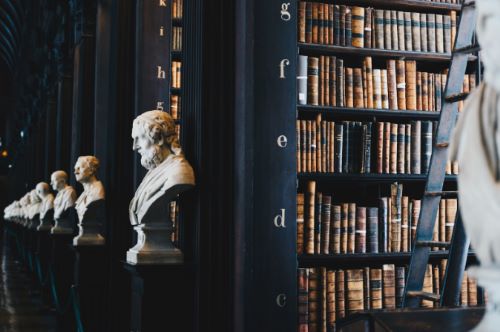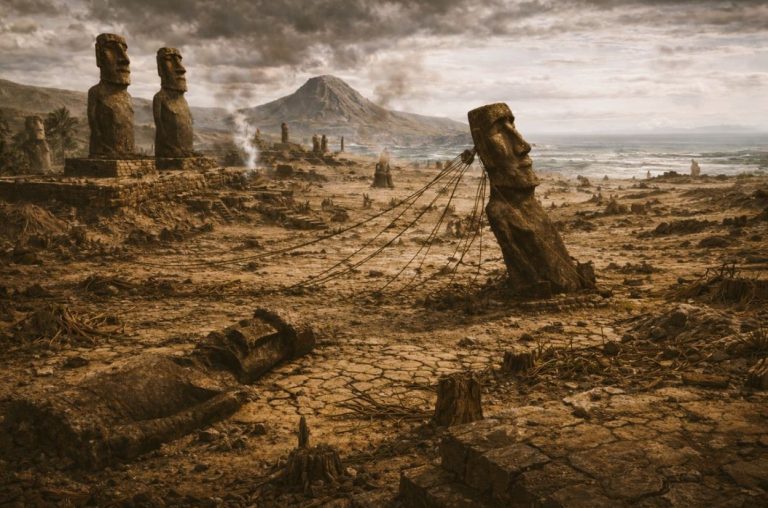

In the fast-paced world of technology and innovation, history might seem like a relic of the past to many students. However, delving into history offers invaluable insights and lessons that are relevant today and can shape our future. From understanding cultural identities to avoiding past mistakes, studying history equips students with a deeper understanding of the world they inhabit. Here are seven compelling reasons why students should start studying history.
1. Understanding the Roots of Societies
Studying history provides profound insights into the foundations of modern societies.
- Trace cultural identities: Learn how artistic practices and norms originated and evolved.
- Understand the evolution of political systems: Understand how past events influenced governmental structures.
- Appreciate technological advancements: Recognize the historical milestones that have led to modern innovations.
- Explore economic shifts: Discover the factors that have shaped the global economy throughout the centuries.
By understanding the roots of societies, students can gain a comprehensive view of the world, fostering a deeper appreciation for the complexities of modern civilization.
If you’re a student immersed in studying history and facing difficulties with history or any other assignments, consider seeking help from professional writers. Expert assistance from academized experts can elevate your work, ensuring it meets educational standards and enriches your learning journey. You can confidently navigate academic challenges by seeking professional guidance and enhancing your knowledge and grades across various subjects.
2. Developing Critical Thinking Skills
History challenges students to analyze and interpret information, enhancing their critical thinking abilities.
- Evaluate sources: Distinguish between primary and secondary sources and assess their reliability.
- Understand cause and effect: Identify the connections between historical events and their outcomes.
- Recognize biases: Learn to detect and understand the influence of biases in historical narratives.
- Develop argumentation skills: Construct and defend arguments based on historical evidence.
These critical thinking skills are not only vital for academic success but are also invaluable in navigating the complexities of everyday life.
3. Learning from Past Mistakes
One of the most practical reasons to study history is to learn from past mistakes.
- Avoid repetition of errors: Understanding past failures can guide present and future decision-making.
- Foster empathy and understanding: Studying the consequences of historical actions can promote a more empathetic worldview.
- Inspire innovation: Recognizing past limitations can inspire innovative solutions to contemporary problems.
- Cultivate patience and perseverance: Historical successes often come after numerous failures, teaching the value of persistence.
Students can create a more informed and considerate society by learning from past mistakes.
4. Enhancing Cultural Awareness and Diversity
History education is a gateway to cultural awareness and appreciation of diversity.
- Expose to different cultures: Discover the rich tapestry of global cultures and traditions.
- Understand global interconnectivity: Realize how historical events have shaped intercultural relations.
- Challenge stereotypes: Historical study helps debunk myths and stereotypes about different cultures.
- Promote tolerance: Learning about the struggles and achievements of various cultures fosters respect and tolerance.
Studying history broadens students’ horizons, preparing them to thrive in a globally interconnected world.
5. Building a Sense of Identity and Belonging
Delving into history can strengthen one’s sense of identity and belonging.
- Explore personal heritage: Uncover the histories of one’s ancestors and cultural background.
- Connect with community history: Learn about the historical events that shaped one’s local community.
- Foster national pride: Understand the achievements and challenges of one’s country through history.
- Discover role models: Find inspiration in historical figures who have significantly contributed to society.
Understanding one’s place in the continuum of history can provide a sense of purpose and connection to the larger human story.
6. Preparing for the Future
History not only looks back but also provides a lens to envision the future.
- Analyze historical trends: Identify patterns that can offer predictions about future trends.
- Understand the impact of technology: Study how technological advancements historically transformed societies.
- Prepare for careers: Knowledge of history is essential in fields such as law, politics, education, and journalism.
- Develop a global perspective: Equip oneself with the understanding necessary to navigate future global challenges.
By studying history, students can become better prepared to face the challenges and opportunities of the future.
7. Enhancing Communication Skills
History requires expressing complex ideas clearly and compellingly, enhancing communication skills.
- Improve writing skills: Writing essays on historical topics teaches students to articulate ideas coherently.
- Enhance verbal articulation: Discussing historical concepts helps develop clear and persuasive verbal communication.
- Learn to construct narratives: History teaches the art of storytelling, an essential skill in many professions.
- Develop research skills: Conducting historical research hones the ability to gather, analyze, and present information.
Studying history enriches students’ knowledge of the past and equips them with essential communication skills that are valuable in academic and professional settings.
Summing Up
In conclusion, studying history offers far-reaching benefits that extend beyond the classroom. It nurtures critical thinking, cultural awareness, and a deeper understanding of the world while preparing students for future challenges. By encouraging students to explore history, we empower them to become informed, thoughtful, and engaged citizens capable of shaping a better future.


